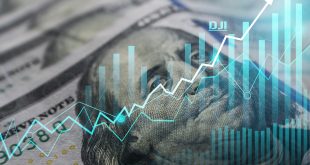On Dubai TV, Mohamed Hashad, Head of Research and Development at Noor Capital and a member of the American Association of Technical Analysts, commented on the latest developments in the financial markets.
Oil Market Developments
Regarding oil, Hashad stated that oil prices saw a significant rise at the beginning of this month following the OPEC+ decision to increase production in July. He noted that oil prices gained over 3%, reaching $63 per barrel. Despite market expectations for a much larger increase than 411,000 barrels per day, the OPEC+ alliance maintained the same pace of increase applied in the previous two months. Oil prices also benefited from the remarkable growth in China’s manufacturing activity last month, which boosted global demand expectations.
Gold’s Upward Momentum
Concerning gold and whether its current upward momentum—which has placed it at the forefront of investors’ attention as a leading safe-haven asset—will continue, Hashad confirmed that gold is indeed experiencing clear upward momentum, with its gains reaching $3,360 per ounce. Gold prices have benefited from a weaker dollar, renewed discussions about tariffs, and the ongoing and escalating Russia-Ukraine conflict. These factors have driven investors toward safe havens, and Hashad believes gold will see further increases, potentially reaching close to its historical peak of $3,500.
Pressures on the US Dollar
As for the US dollar, which appears under renewed pressure from US President Donald Trump’s policies, Hashad pointed out that Trump’s policies have led to clear pressure on the dollar, starting with tariffs and extending to the tax cut bill, where he refuses to cut spending. This could increase the national debt by nearly $83 trillion, bringing the total debt to $38.6 trillion. Hashad believes the dollar will face more challenges in the coming period, especially with weak demand for US bonds and dollar-denominated assets.
Japan’s Economic Situation
Hashad also analyzed Japan’s situation and the impact of its developments on financial markets, noting that bleak and shocking data is emerging from Japan, alongside a potential meeting between Japan and the United States. He believes Japan is experiencing an unprecedented and complex economic crisis driven by several factors, including rising debt levels, persistent inflationary pressures, and declining investor confidence in the Japanese bond market, as Japan is one of the largest bond issuers. Furthermore, growth declined by 0.7% in the first quarter of this year, and the automotive sector was significantly impacted. A meeting between the Japanese Prime Minister and Donald Trump is expected before the G7 summit in an effort to reach an agreement on tariffs.
Market Expectations for the Week
Hashad concluded his comments on market expectations for the current week, given these pivotal data and circumstances, by stating: “We are eagerly awaiting US jobs data, particularly average wages and unemployment rates, which will give us a clear insight into the expected path of interest rates in the upcoming months.”
 Noor Trends News, Technical Analysis, Educational Tools and Recommendations
Noor Trends News, Technical Analysis, Educational Tools and Recommendations




